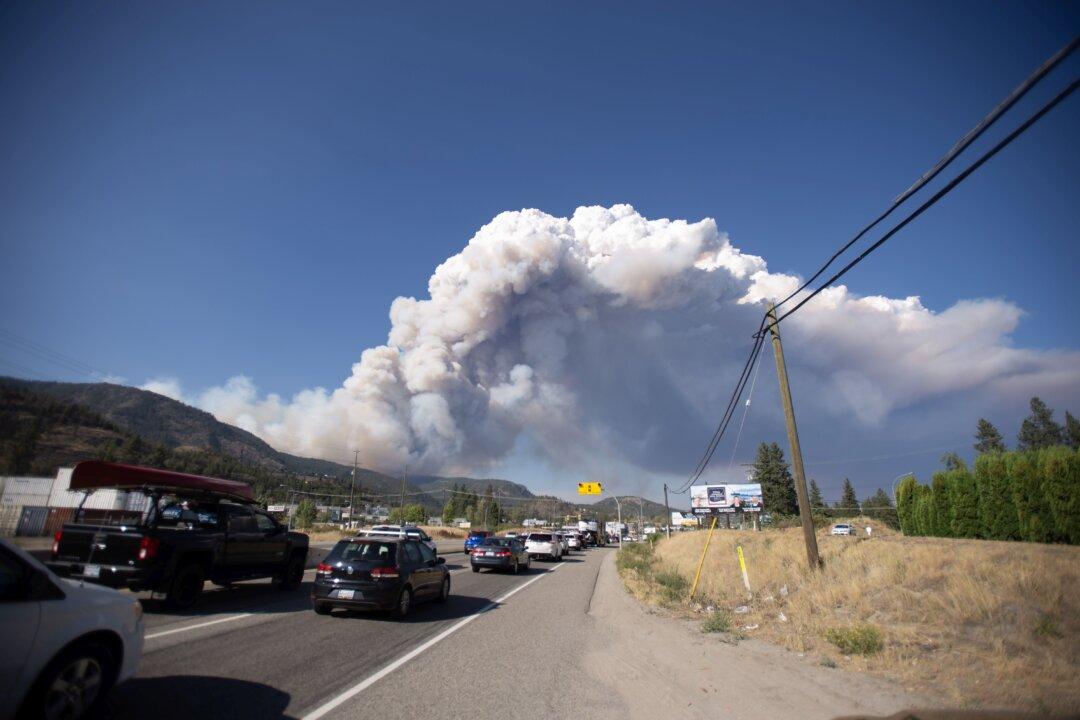Tens of thousands of people in British Columbia and the Northwest Territories have been left wondering when they can return to their evacuated homes, as the battle continues against out-of-control wildfires.
“It is an extraordinarily serious situation,” Prime Minister Justin Trudeau said during a press conference on Aug. 20. “I have to highlight as well, though, that even as we’re seeing those terrible images, we’re also seeing images of how Canadians across the country, particularly out West, are stepping up to help their fellow citizens, their neighbours, residents who are fleeing for their lives.”





